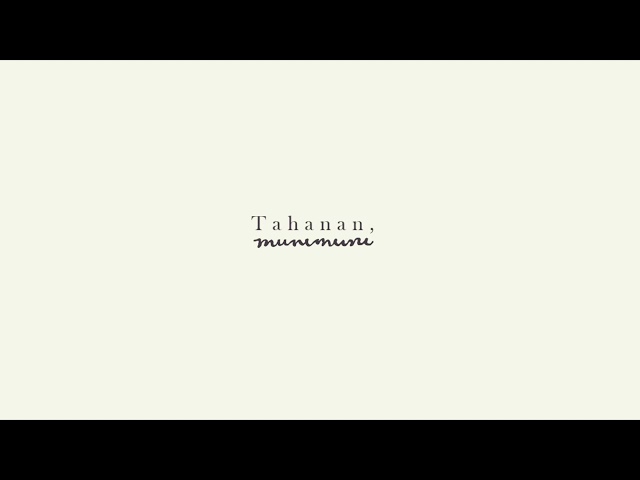MANILA, Philippines – Families exist and unravel in countless ways — some loud, some quiet, some so ordinary they go unnoticed — and thus wrote Leo Tolstoy: “All happy families are alike; each unhappy family is unhappy in its own way.”
Sometimes the familial wounds you fester aren’t borne from abandonment, but are scars inflicted from overprotection, pride, hate, or love given in the wrong shape, the wrong size, too little, too late.
Father’s Day isn’t greeted with the same fanfare in every household, but music often rises to fill the gaps when words fail and silences ache. This playlist neither pays tribute to perfect fathers nor admonishes the imperfect ones, but it is composed of songs which reflect the complicated bonds many of us inherit or endure.
Let these tracks hold space for what’s unresolved or closed, what still stings or gently lingers, and what strength it takes to name that hurt in the first place.
“Tahanan” by Munimuni
Indie folk band Munimuni’s signature “makata pop” lyricism comes alive through “Tahanan,” in which the Filipino word for “home” folds in on the multiplicity of its implications; here, the song reckons with “tahanan” not just a place of return, but a command to soothe.
“Hanggang dito na lamang ang ‘yong mga luha / tahan na,” are the song’s exit wounds, as though grief can be held the way a hand is held, without fixing it. The song does not try to outpace sadness, only sit beside it, cooing at it like a child.
Munimuni’s steady harmonies move like an arm around the shoulder, promising that even if you are not ready to forgive or remember fondly, someone will still stay — “umaakay sa’yo / nandito lang ako.” If the dawn of this holiday brings you to sorrowful tears, let this song be there for you. For those who do not yet know what healing looks like, only that they want to be somewhere, at a place they call “home” for more than mere physicality, where peace might arrive someday.
“Kyoto” by Phoebe Bridgers
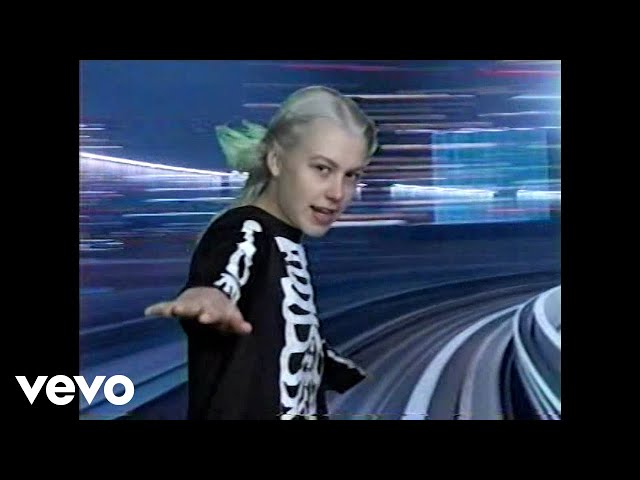
In “Kyoto,” an acclaimed indie rock track, singer-songwriter Phoebe Bridgers pairs a brisk horn section and upbeat rhythm with lyrics that unravel slowly, sung with her voice held low, the words landing on the cusp of fatigue moreso than fury. She never raises her voice as she details her father’s different shortcomings, from promises to get sober to his birthday greeting given several days off the right date. She doesn’t need to.
“I don’t forgive you / but please don’t hold me to it,” she sings, and Bridgers’ words make a palimpsest of her intent — what reads as distance at first blush quickly reveals itself as the soft scarring of want. This is not a ballad that fissures at a singular moment of disappointment, instead detailing all the sediments of uncaring that slowly erode a child’s faith.
Because fathers may not be monsters; they just weren’t where they said they’d be. In turn, some songs grieve, but this one shrugs, packs its bags, and leaves the lights on anyway for a reconciliation that may come clumsily, if at all.
“Waltz of Four Left Feet” by shirebound
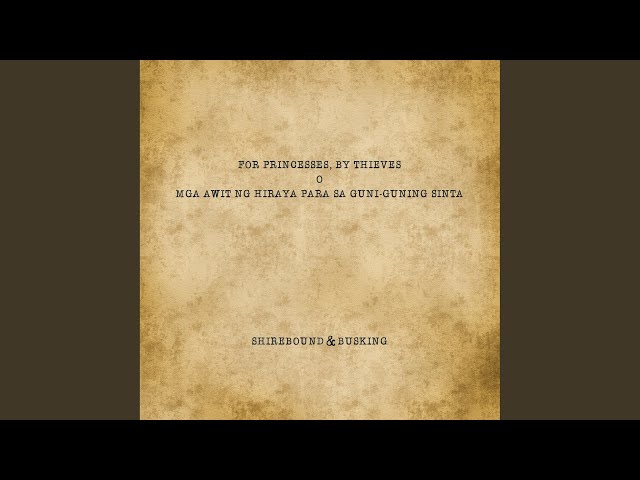
Though often heard as a song of unrequited love, “Waltz of Four Left Feet” by Manila-based act shirebound slips easily into the language of family — think father-daughter dances not taken, hands not held in photographs of milestones, pressing questions about coming of age that were never answered.
In shirebound’s signature lo-fi hush, this song captures the forlorn grace of a person trying to make peace with being on the sidelines, whose love asks for naught. If one repeats the song’s chorus enough times, “Hindi ko naman yata ikakamamatay / kung hindi ko mahawakan ang iyong kamay,” can they breathe it into being?
The melody, a beautifully awkward riff at the painful precipice of something fuller, sways like a slow dance between two people who want to get it right but can’t quite find the rhythm. It sounds like trying anyway. Atypical of thematically similar songs that gild their grief in gold, there is no grand declaration here, no reaching crescendo that bares its teeth between bridge and refrain.
Instead, the song stays painfully committed to its stripped-down tune, which feels eerily similar to loving from a distance, accepting partial presences, and dancing even when every step lands slightly wrong.
“I Love You, I Hate You” by Little Simz
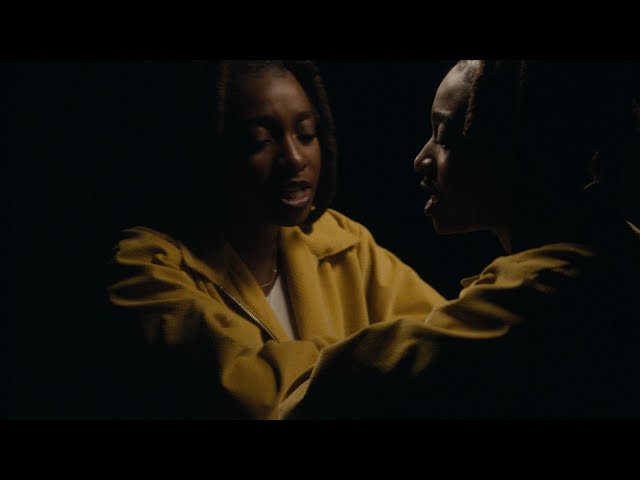
Take a reprieve from melodramatic ballads with Little Simz’s “I Love You, I Hate You,” which in lieu of sad crooning, delivers its reckoning through breathless bars and orchestral heft. The song is a slow, hard look at the first man we are taught to make monuments of. It confronts the emotional wreckage of paternal absence and fallibility without sacrificing clarity, never letting anger eclipse insight.
What emerges is not a portrait of the villainous devil-father, but the fruits of a difficult humanization for the one who taught you how to love by not showing it. Here, the father is no longer a myth but a man who was once a boy. The daughter, too, is not rendered merely as a child in need but a woman working through inherited silence.
Yet even as the hurt unfolds, so does mercy. Not the kind that absolves too easily, but the kind that regards each figure — father and daughter — as flawed people trying and failing and trying again to reach each other.
The anger in “Is you a sperm donor or a dad to me?” and the pity in “He was just once a boy, I often seem to forget” sit side by side, neither canceling the other out. To hold both is to let the pedestal crumble without turning away in contempt. There is something to be learned in her verses, which tell of how generational pain is broken by the hard, ordinary work of seeing each other as human.
“Walang Kapalit” by Rey Valera

Rey Valera’s song “Walang Kapalit,” like all of its temporal and stylistic contemporaries, inevitably evokes the feeling of nostalgia. Like his song is best enjoyed on cassette or hummed in the back of a tricycle on the way home from church.
The instrumentation is unhurried, and the Manila sound icon’s voice carries the polite ache of a person who’s learned that love, in this world, is most palpable and painful as duty. It is a song that offers everything and expects nothing, a kind of martyrdom so familiar in Filipino homes that it aches of ancestry.
Its lyrics are apertures in which the ways we inculcate devotion bleed through — remember how love, and especially familial love, is sacrifice, silence, and something that dare not speak of its own exhaustion. It may recall the kind of father who, by the doctrines of traditional masculinity, never spoke to his children of love. Or the child who learned to endure, having taken the heirloom of a love that always gave but never asked.
“Babyfather” by Sade

Helen Folasade Adu sings “Babyfather” as if conjuring a man from vapor, her voice a velvet salve pressed to a bruise. Written for her daughter, the song glances sidelong at two men, her child’s father and stepfather, folding them into one blurred silhouette. Her voice sings with certainty, introducing a baby to the fathers that love them, but listeners’ thoughts are coaxed into wondering: do you and your mother know the same man?
As it repeats the lines, “Your daddy knows you’re a flame,” and “your daddy love come with a lifetime guarantee,” the song shimmers with a warmth that coats over something colder beneath. A lullaby half-meant for the cradle, half-addressed to the woman holding memories of a man in her heart, “Babyfather” may offer comfort to some; for others, the mantra-esque affirmations seem like a mother’s belabored attempt to soothe a truth too tangled to name.
Either way, like most compositions in the English band’s discography, it is a stunning, albeit arresting, track woven from the womb of love.
“paruparo” by syd hartha
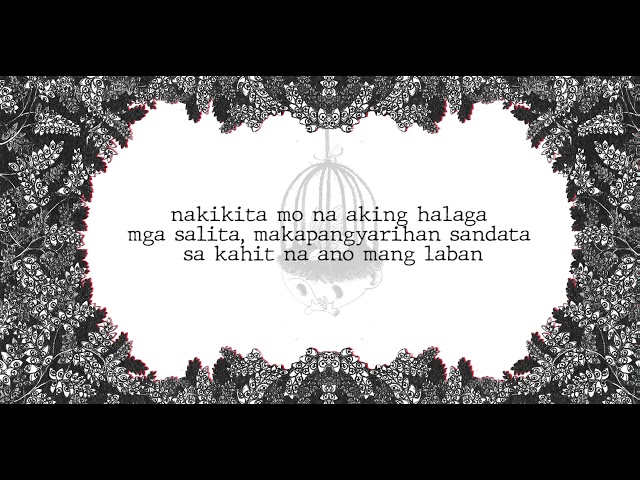
“paruparo” epitomizes syd hartha’s complex songwriting ethos with its fluttering repetition and layered lyricism, tracing the evergreen journey of becoming through the similarly enduring metaphor of a burst chrysalis.
The song narrates how one chooses to grow, even when belief in that growth is scarce. Lending credence to the song’s beauty is how the butterfly is not romanticized within it. Rather, it is vulnerable, sometimes doubted, always in motion. Even flight, the song warns, does not guarantee safety from the pull of the earth. “Sa laya ng lipad, maaari pa rin na sumayad,” her voice echoes.
To grow without a father’s warmth — or worse, in the shadow of his harm, as the songwriter has — does not necessitate that your growth be attributed to his, or anyone else’s, hatred. What this song offers, rather than retaliation, is more exacting: a refusal to be shaped by absence.
syd hartha resists the gravity of what she does not name, and in doing so, allows something more luminous to take seed in scorched earth. Her lyrics bloom with the maturity of someone who knows that survival is not always loud, that flight is not always majestic. Sometimes it is slow, irregular, a little lopsided, but in all its trajectories, it is flight all the same. And “paruparo” teaches us how to bear that fragility with dignity.
Happy listening. Happy maybe-not-quite happy Father’s Day, too. Maybe these tracks won’t fit your story. Maybe just one will. Take what you need. Leave the rest. Press your ear to the body of your past and hopes for the future, and hear what kind of music lives there. – Rappler.com
Angela Divina is a Rappler intern studying Bachelor of Fine Arts in Creative Writing at the Ateneo de Manila University.
Content shared from www.rappler.com.

